Select Life and Works of Samuel Seabury (12 vols.)
Digital Logos Edition
This product has been transferred from Community Pricing to Pre-Pub. The actual funding level may be lower than it appears, which could delay production. The amount of funding still needed will be evaluated and updated soon.
Overview
The contentious figure of Samuel Seabury is powerfully represented in both his writings the memoirs dedicated to him in this collection. A British loyalist and clergyman of the Church of England during the American Revolution, Seabury strongly trumpeted the cause of the British crown. Though he was imprisoned for his views, Seabury chose to remain in America after the war and dedicated himself to building and organizing the American Episcopal Church. Thought often reviled for his outspoken and unpopular pre-revolutionary support of England, Seabury persevered in his duty to serve the Church in the young United States, and was elected the first bishop of the American Episcopal Church.
In this collection, you’ll discover four letters that he wrote after the First Congressional Congress under the name “A.W. Farmer,” warning people of the errors of sedition. You’ll also find the first divine office written for the American Episcopal Church, sermons by Seabury on various subjects, and memoirs of his life and works.
The Select Life and Works of Samuel Seabury offers a fascinating glimpse into the intertwining of religion and politics during the American Revolutionary era, as well as into the development of the American Episcopal Church.
In the Logos editions, The Select Life and Works of Samuel Seabury are enhanced by amazing functionality. Scripture citations link directly to English translations, and important terms link to dictionaries, encyclopedias, and a wealth of other resources in your digital library. Perform powerful searches to find exactly what you’re looking for. Take the discussion with you using tablet and mobile apps. With Logos Bible Software, the most efficient and comprehensive research tools are in one place, so you get the most out of your study.
For more sermons from this era, take a look at Selected Sermons of George Whitefield.
Key Features
- Provides historical insight into the formation of the American Episcopal Church
- Contains several sermons by the first American Episcopal bishop
- Offers an intriguing glimpse into the British loyalist perspective during the American Revolution
Product Details
- Title: Select Life and Works of Samuel Seabury
- Volumes: 12
- Pages: 2,196
- Christian Group: Anglican/Episcopalian
- Resource Type: Collected Works
- Topic: History
Individual Titles
- The Communion-Office, or Order for the Administration of the Holy Eucharist or Supper of the Lord with Private Devotions
- A View of the Controversy between Great-Britain and Her Colonies
- Free Thoughts on the Proceedings of the Continental Congress
- The Congress Canvassed
- An Alarm to the Legislature of the Province of New-York
- Discourse, Delivered in St. John’s Church, in Portsmouth, New Hampshire, at the Conferring the Order of Priesthood on the Rev. Robert Fowle, A.M. of Holderness, on the Festival of St. Peter, 1791
- Discourses on Several Subjects, vol. 1
- Discourses on Several Subjects, vol. 2
- Discourses on Several Important Subjects
- Life and Correspondence of the Right Reverend Samuel Seabury by E. Edwards Beardsley
- Memoir of Bishop Seabury by William Jones Seabury
- Unpublished Letters by Samuel Seabury and John Skinner
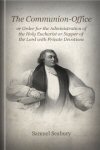
The Communion-Office, or Order for the Administration of the Holy Eucharist or Supper of the Lord with Private Devotions
- Author: Samuel Seabury
- Publisher: T. Green
- Publication Date: 1786
- Pages: 72
As the first American Episcopal bishop, Samuel Seabury published this communion service in his diocese of Connecticut, where it was used for several years until it was eventually replaced by the US Book of Common Prayer. Because Seabury was consecrated in Scotland, this Office closely resembles the Scottish Communion Office of 1764, though obviously omitting any references to a monarch.
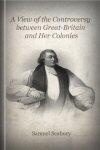
A Loyalist at odds with the First Continental Congress during the American Revolution, Samuel Seabury wrote four letters under the name “A.W. Farmer,” supporting the cause of the British Crown. A View of the Controversy between Great-Britain and Her Colonies urged colonials to follow a mode of resolving the current crisis “finally and effectually” and to prevent “all future contentions.”
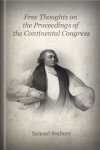
A Loyalist at odds with the First Continental Congress during the American Revolution, Samuel Seabury wrote four letters under the name “A.W. Farmer,” supporting the cause of the British Crown. Free Thoughts on the Proceedings of the Continental Congress pointed out the errors that, in Seabury’s opinion—were displayed at the First Continental Congress. He also refutes the reasoning behind the non-importation, non-exportation, and non-consumption measures adopted as a result.
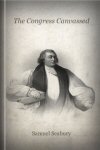
A Loyalist at odds with the First Continental Congress during the American Revolution, Samuel Seabury wrote four letters under the name “A.W. Farmer,” supporting the cause of the British Crown. Addressed to the merchants of New York, The Congress Canvassed presents “an examination into the conduct of the delegates,” at the First Continental Congress.
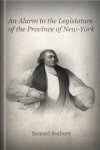
A Loyalist at odds with the First Continental Congress during the American Revolution, Samuel Seabury wrote four letters under the name “A.W. Farmer,” supporting the cause of the British Crown. An Alarm to the Legislature of the Province of New-York was his response to the political disturbances that rang throughout North America prior to the American Revolution.
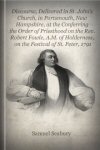
Discourse, Delivered in St. John’s Church, in Portsmouth, New Hampshire, at the Conferring the Order of Priesthood on the Rev. Robert Fowle, A.M. of Holderness, on the Festival of St. Peter, 1791
- Author: Samuel Seabury
- Publisher: Isaiah Thomas and Ebenezer T. Andrews
- Publication Date: 1791
- Pages: 44
Concerned over misrepresentation and public abuse of his sermon on Matthew 28:18–20, Seabury published this volume, declaring that “He has as undoubted a privilege to explain and establish the Episcopacy of the Church, as others claim to revile and destroy it.” Seabury believed “The principles . . . will abide the trial of reason and Scripture.”
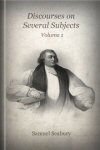
This volume contains 15 discourses on subject such as infant baptism, the authority of Christ’s ministers, the apostolic commission, Christian unity, and the effects of unbelief and impenitency.
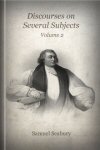
This volume contains 22 discourses on topics including temptation, deliverance from sin, and caution on how to listen to sermons. He also includes discourses on biblical figures such as Esau, Zacharias, and Bartimeus.
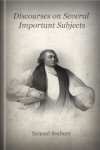
This volume includes six discourses: “Observations on the History of Pharaoh,” “Mercy and Judgment,” “The Doom of Jerusalem,” “Observations on David’s Numbering the People,” “Jesus the Son of God, the Judge of the World, the Object of Christian Worship,” and “Heaven the City of Christians, Jesus the Resurrection and the Life.”
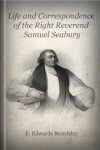
In his biography of Samuel Seabury, Eben Edwards Beardsley outlines the struggle and pain that Seabury endured as an ardent royalist in the midst of Revolution, calling out plainly the controversial position Seabury occupied in the newly independent country. In addition, Beardsley covers Seabury’s childhood, desire for an American Episcopate, clerical friendships, and firmness of allegiance to Britain and consequent imprisonment. The remainder of the volume covers Seabury’s establishment of the Episcopal Church in the United States.
Eben Edwards Beardsley (1808–1892) was an American Episcopalian priest. He attended Trinity College in Connecticut, and was ordained to the priesthood in 1836. He was rector of St. Thomas Church in New Haven, Connecticut, from 1848 until his death in 1892. He wrote other memoirs and biographies, including Life and Correspondence of Samuel Johnson, D.D., and The History of the Episcopal Church in Connecticut from the Settlement of the Colony to the Death of Bishop Seabury.
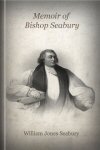
This memoir, written by Samuel Seabury’s great-grandson, offers an updated look at the life of the first American Episcopalian bishop, adding some personal interest to the largely political story of Samuel Seabury.
William Jones Seabury (1837–1916) was rector of the Church of the Annunciation and Charles and Elizabeth Ludlow Professor of Ecclesiastical Polity and Law at the General Theological Seminary in New York. He also wrote Lectures on Apostolical Succession in the Church of England.
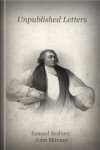
Unpublished Letters
- Authors: Samuel Seabury and John Skinner
- Publisher: Church Missions Publishing Company
- Publication Date: 1928
- Pages: 24
This volume contains letters between Samuel Seabury, bishop of Connecticut, and John Skinner—bishop of Aberdeen and one of the three Scottish bishops to consecrate Seabury since, as the first American bishop, there were none in the United States to consecrate him. These letters offer insight into the formation of the American Episcopalian Church in the late eighteenth century.
John Skinner (1744–1816) was bishop of Aberdeen and primus of the Scottish Episcopal Church. He studied at Marischal College in Aberdeen and received his MA in 1761. He was ordained a priest in 1764 and was appointed bishop in 1782. He was one of the three bishops to consecrate Samuel Seabury in 1784. He became primus in 1786.
About Samuel Seabury
Samuel Seabury (1729–1796) was an Anglican minister who became the first American Episcopal bishop. A controversial figure, Seabury was a leading Loyalist during the Revolutionary War who wrote a series of letters supporting the British Crown under the name A.W. Farmer. He was imprisoned for six weeks during the Revolution, and after the war he remained in the United States. He was elected as the first Episcopal bishop in America in 1783. He organized the American Episcopal Church and established the Episcopal Academy of Connecticut. His writings are still read and studied today.